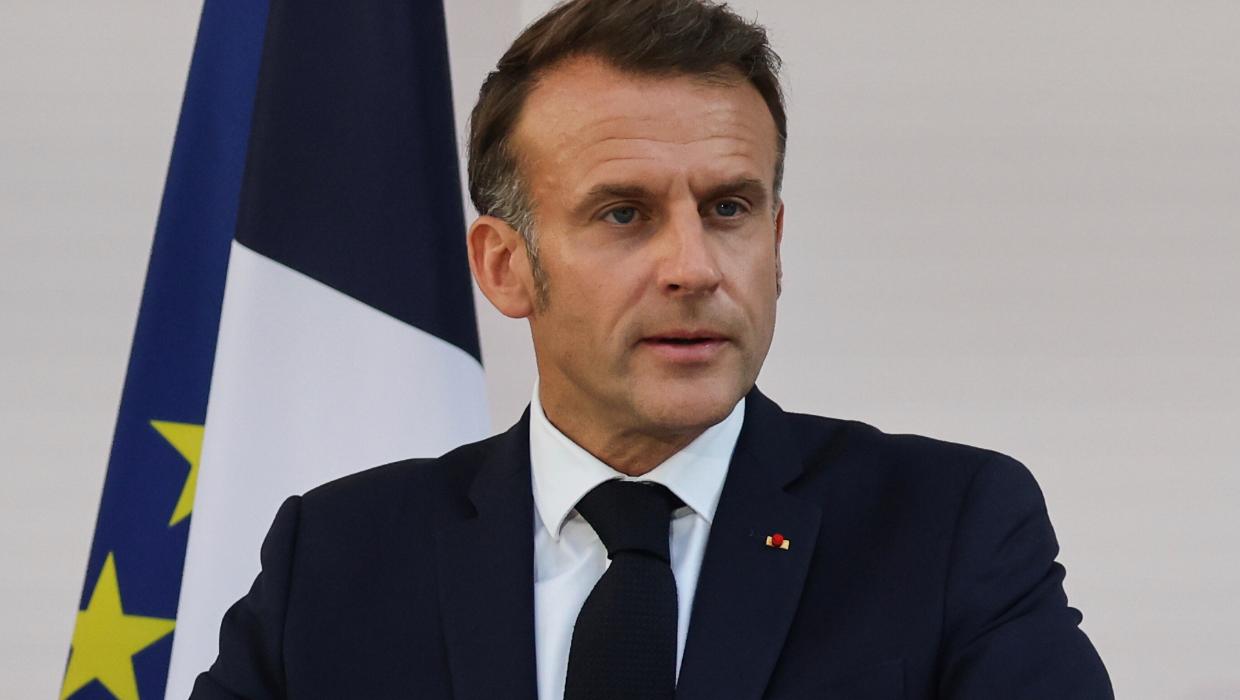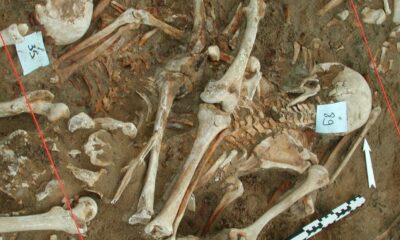Politics
Macron Announces France’s Recognition of Palestinian Statehood

French President Emmanuel Macron declared on October 5, 2023, that France will officially recognize Palestine as a sovereign state. This announcement comes in response to escalating global outrage over the humanitarian crisis in Gaza, where reports indicate that many residents are facing severe food shortages.
The recognition of Palestine aims to support its aspirations for statehood and is part of France’s broader commitment to achieving peace in the region. President Macron emphasized the importance of dialogue and cooperation among nations to address the ongoing conflict. He stated, “France is committed to a two-state solution that respects the rights and sovereignty of both Israelis and Palestinians.”
Global Context and Humanitarian Concerns
The situation in Gaza has drawn international attention, with various organizations expressing alarm over the living conditions faced by civilians. According to a recent report from the United Nations, over 1.5 million people in Gaza are in urgent need of food assistance. The report highlights the dire need for humanitarian aid and the importance of international support for those affected.
Macron’s decision aligns with a growing movement among European nations to recognize Palestinian statehood. The French government believes that this step could facilitate renewed negotiations aimed at resolving the long-standing Israeli-Palestinian conflict. In recent months, protests in cities across France have called for increased support for Palestinians, highlighting the rising public sentiment on this issue.
Responses and Future Implications
Reactions to Macron’s announcement have been mixed. Palestinian leaders welcomed the recognition, viewing it as a significant step toward achieving their national aspirations. Palestinian Authority President Mahmoud Abbas expressed gratitude for France’s support, urging other nations to follow suit.
Conversely, Israeli officials have condemned the decision, arguing that it undermines peace efforts and could exacerbate tensions in the region. The Israeli government has urged France to reconsider, asserting that unilateral recognition does not contribute to a viable peace process.
As the international community continues to grapple with the complexities of the Israeli-Palestinian conflict, Macron’s announcement marks a pivotal moment that could influence future diplomatic relations. France’s recognition of Palestine is seen as a commitment to advocating for a balanced approach that addresses the rights and needs of both parties involved.
The implications of this decision will likely unfold over the coming months, as France navigates its role in international diplomacy and the ongoing humanitarian crisis in Gaza.
-

 Sports2 months ago
Sports2 months agoNetball New Zealand Stands Down Dame Noeline Taurua for Series
-

 Entertainment2 months ago
Entertainment2 months agoTributes Pour In for Lachlan Rofe, Reality Star, Dead at 47
-

 Entertainment2 weeks ago
Entertainment2 weeks agoNew ‘Maverick’ Chaser Joins Beat the Chasers Season Finale
-

 Sports2 months ago
Sports2 months agoSilver Ferns Legend Laura Langman Criticizes Team’s Attitude
-

 Politics3 weeks ago
Politics3 weeks agoNetball NZ Calls for Respect Amid Dame Taurua’s Standoff
-

 Entertainment2 months ago
Entertainment2 months agoKhloe Kardashian Embraces Innovative Stem Cell Therapy in Mexico
-

 Sports2 months ago
Sports2 months agoGaël Monfils Set to Defend ASB Classic Title in January 2026
-

 World3 months ago
World3 months agoPolice Arrest Multiple Individuals During Funeral for Zain Taikato-Fox
-

 Entertainment4 weeks ago
Entertainment4 weeks agoTyson Fury’s Daughter Venezuela Gets Engaged at Birthday Bash
-

 Sports4 weeks ago
Sports4 weeks agoHeather McMahan Steps Down as Ryder Cup Host After Controversy
-

 Entertainment4 weeks ago
Entertainment4 weeks agoTyson Fury’s Daughter Venezuela Gets Engaged at Birthday Bash
-

 World4 weeks ago
World4 weeks agoNew Zealand Firefighters Plan Strike on October 17 Over Pay Disputes





















